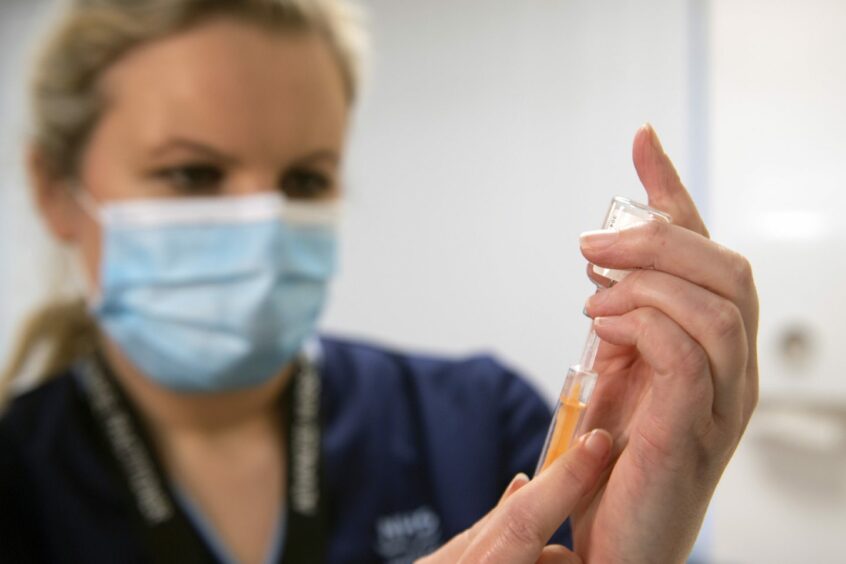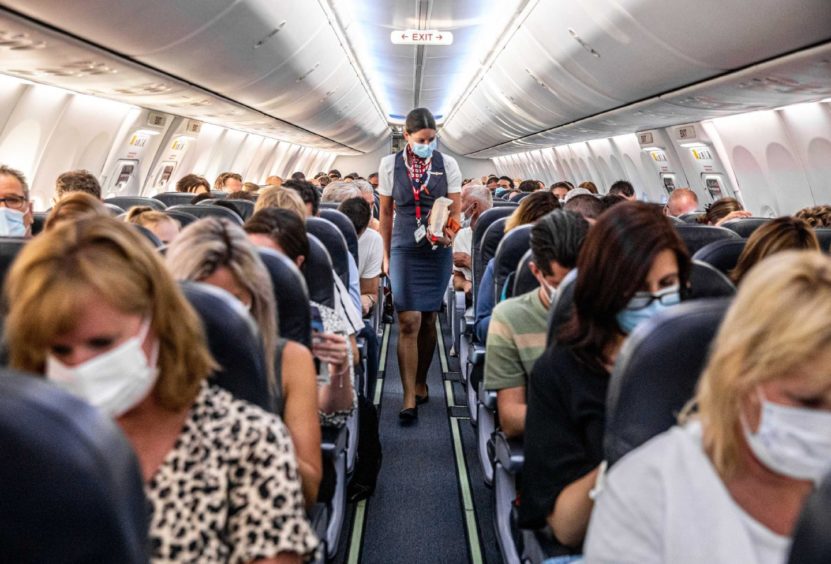The over 50s could be given a fourth Covid booster as soon as autumn, a public health expert has said.
Professor Linda Bauld, of Edinburgh University, today urged those who have not been vaccinated or who have missed a dose to come forward to protect themselves and others from the virus.
One in 14 people in Scotland are currently reporting a positive test as the Omicron Ba.2 sub-variant drives the infections to a new high.
More restrictions have been dropped today, although face masks remain a legal requirement.
Vaccines are ‘key’
Speaking on BBC Radio Scotland’s Good Morning Scotland programme Prof Bauld said: “Vaccines are key for the most vulnerable in the weeks ahead and we urge people to come forward yet again for another dose.
“Because we do see that protections (offered by the vaccination) are waning – that might contribute to the numbers, however moderately, we are seeing in hospital at the moment.”
Prof Bauld, who also advises the Scottish Government, said the government may now be thinking of offering a second booster, or fourth jag, to all age groups.
At the moment a programme of offering a fourth jag is being rolled out to the clinically most vulnerable, but she said that may soon be extended.
“The JCVI will look at this,” she said. It is probably likely as we head towards the autumn, people for example in their 50/60 will be eligible.
“I don’t know how far down the age range they will go but that really depends on what we see in the data.
“Let’s not forget what they (the vaccination clinics) are doing at the moment is rolling out the children’s vaccination programme, and they have already started in care homes.
“Record numbers have come forward for vaccination, around 86%, but some people who have not come forward for second does or boosters although in small numbers. They can still do that.
“In future we may have different vaccinations that protect for multiple variants, we are not there yet by that is a scientific option on the horizon.”
Face masks here to stay
Turning to the issue of face coverings, she said: “I think we have to move away from reliance on legal measures for things such as facemasks – we are two years into this now.
“I think they make a contribution to reducing infections. Not any one single intervention will solve the problem.”
She said when it was no longer legally set out that people should wear face masks – people will still be asked to wear them in places such as on public transport.
“Opinion polling shows the large majority are still comfortable with wearing masks and we have learned how wearing masks can protect us and others.
“If we move from legal to advice on wearing facemasks – it may in the future be strengthened again.”


